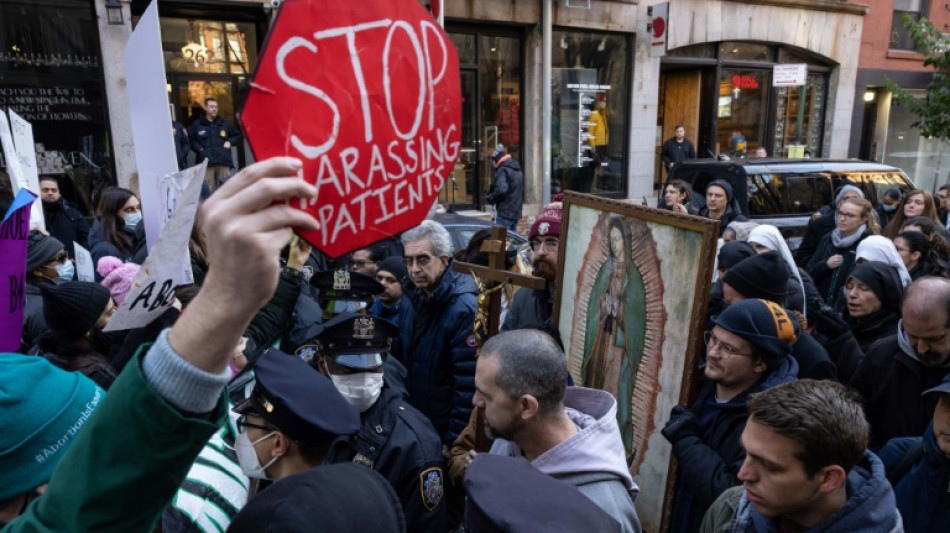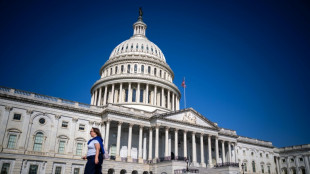
| CMSC | -0.83% | 24.12 | $ | |
| JRI | -4.9% | 12.03 | $ | |
| RBGPF | 3.18% | 62.49 | $ | |
| BCC | -5.13% | 126.62 | $ | |
| GSK | -1.6% | 33.69 | $ | |
| AZN | -3.93% | 64.64 | $ | |
| BCE | -0.77% | 23.4 | $ | |
| RIO | -3.57% | 59.34 | $ | |
| SCS | -4.74% | 12.46 | $ | |
| NGG | -2.82% | 57.77 | $ | |
| CMSD | -0.72% | 23.76 | $ | |
| RYCEF | -1.78% | 7.3 | $ | |
| RELX | -1.49% | 46.33 | $ | |
| VOD | -2.62% | 8.41 | $ | |
| BTI | -0.78% | 37 | $ | |
| BP | -1.89% | 28.54 | $ |

Citigroup to cover travel costs after US state abortion laws
Citigroup plans to provide travel benefits to workers who live in states that have passed laws to restrict abortion rights, such as Texas.
The big US bank said in light of "changes in reproductive healthcare laws in certain states," it will provide travel benefits to "facilitate access to adequate resources," according to a securities filing published Tuesday.
The document, prepared in connection with the bank's annual shareholder meeting in April, does not specifically mention abortion.
But the new policy comes as several US states enact new restrictions.
These include the Texas Heartbeat Act, which bans abortions after a heartbeat can be detected in the womb, normally around six weeks -- before many women even know they are pregnant -- and which makes no exceptions for rape or incest.
In Missouri, a state lawmaker recently introduced legislation intended to block residents from traveling out of state for abortions.
The Guttmacher Institute, a pro-choice research group, has said that 26 states are "certain or likely" to ban abortion if the US Supreme Court overturns the "Roe vs. Wade" decision later this spring in a ruling on a law in the state of Mississippi.
In 2021, 19 states enacted restrictions on abortion rights, the institute said.
Legal analysts believe the 1973 Supreme Court ruling, which protects abortion rights, could be overturned following recent court appointments.
At a December oral argument, the Supreme Court's conservative majority appeared largely sympathetic to Mississippi, but it was unclear how far a majority would go in striking down earlier rulings.
X.Lefebvre--JdB



